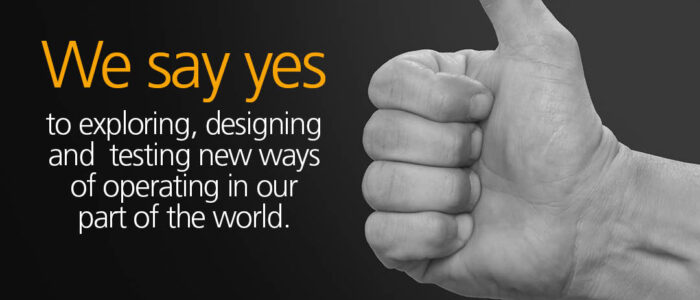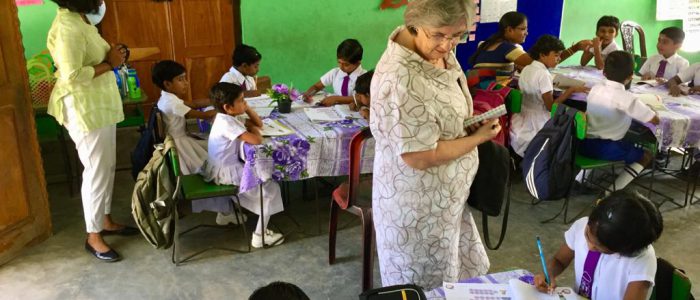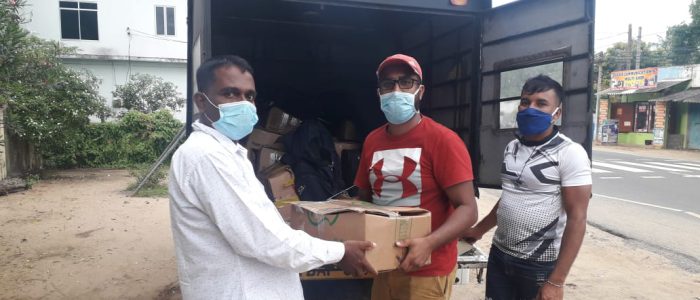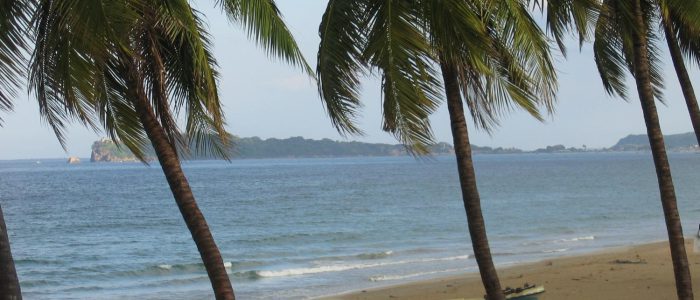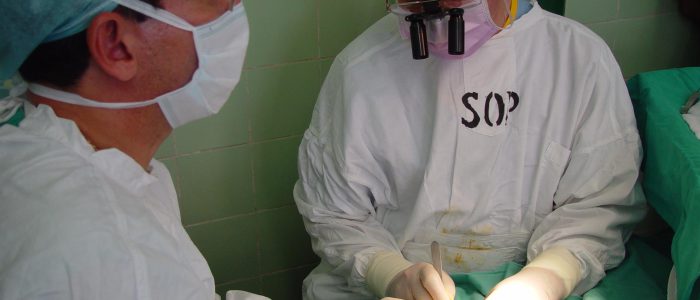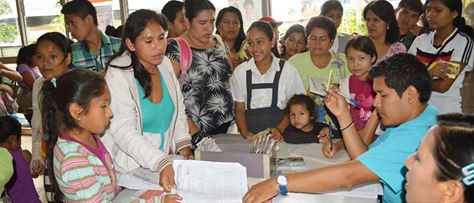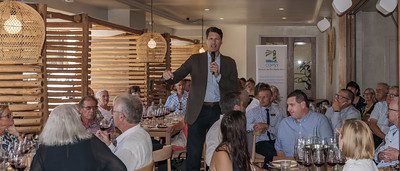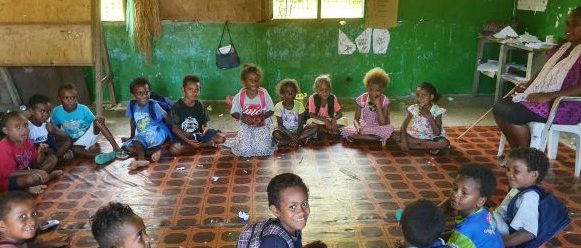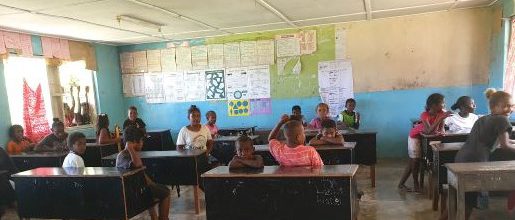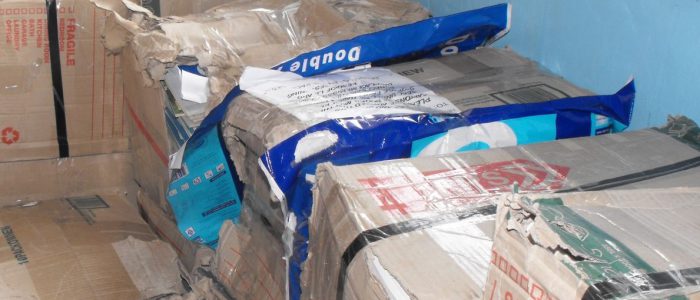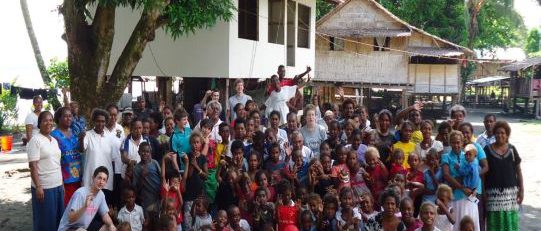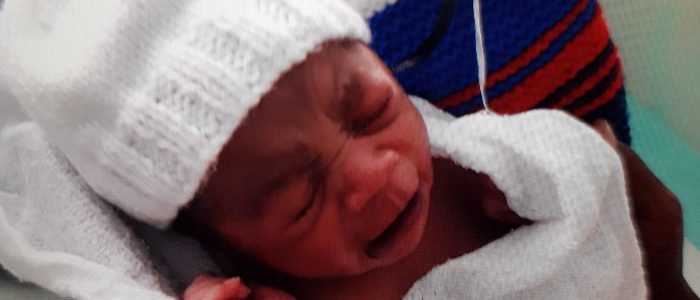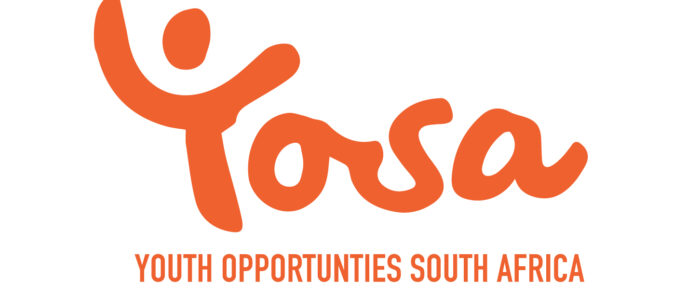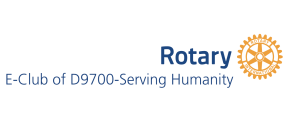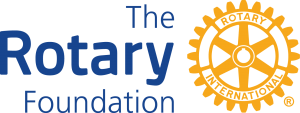
november is foundation Month
“We should not live for ourselves alone, but for the joy in doing good for others.” – Arch Klumph, founder of The Rotary Foundation
The mission of The Rotary Foundation is to enable Rotarians to advance world understanding, goodwill, and peace through the improvement of health, the support of education, and the alleviation of poverty.
The Rotary Foundation helps fund our humanitarian activities, from local service projects to global initiatives. Your club or district can apply for grants from the Foundation to invest in projects and provide scholarships. The Foundation also leads the charge on worldwide Rotary campaigns such as eradicating polio and promoting peace. Rotarians and friends of Rotary support the Foundation’s work through voluntary contributions.
The Rotary Foundation transforms your gifts into projects that change lives both close to home and around the world. As the charitable arm of Rotary, we tap into a global network of Rotarians who invest their time, money, and expertise into our priorities, such as eradicating polio and promoting peace. Foundation grants empower Rotarians to approach challenges such as poverty, illiteracy, and malnutrition with sustainable solutions that leave a lasting impact.
Strong financial oversight, a stellar charity rating, and a unique funding model mean that we make the very most of your contribution. Give and become a part of Rotary’s life-changing work!
Since the first donation of $26.50 in 1917, the Foundation has received contributions totaling more than $1 billion.
All Rotarians are asked to contribute to our Foundation each year. You can rest assured that your donation will be used for a good purpose.
You can make your donation directly through My Rotary or on this website to our Club Service Account by direct deposit and our Treasurer Marilyn will forward it to the Rotary Foundation on your behalf. The account details are on the Treasurer’s Page under Members.
You will be issued with a tax deductible receipt from the Rotary Foundation.
REMINDEr – Next Tuesday 15th October is the AGM of our E-CLUB of D9700 serving Humanity at 7.00pm ESDT
An invitational email will be sent to all members today as well as Assistant Governor Michael Horth and our new member Kate Bowyer who has a RAWCS project operating in Tanzania.
return home after visit to the Solomon Islands
I apologise for the delay in my post this week as communications in the Solomon Islands is difficult due to the high number of users on Wifi and Global Roaming costs.
However PP Richard Pottie and I have returned home enthusiastic about the projects that we have organised for May next year. I will tell you more on this soon.
The pictures below are part of our welcome to Garanga Vocational Training Centre, Santa Isabel where we plan to build a mechanical engineering workshop.
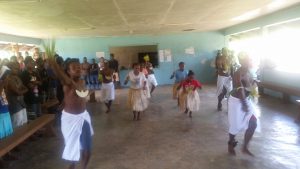
Students dance for us
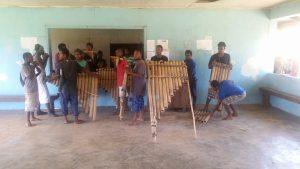
Student Pan Pipe Band
Solomon island RAWCS trip
This week PP Richard Pottie from the Rotary Club of Wagga Wagga Kooringal and I have travelled to Santa Isabel, Solomon Islands to plan for some hands on teams that will travel to here during 2017.
Anyone who is interest in working on a team should contact me and register their interest. We are still requiring more funding so that all the work can be completed. All donations welcome at RAWCS Project 9-2009-10 on this website under International.
When I give to Rotary, I get so much more back
By Stephanie Witkowski, Rotary Club of Honolulu Pau Hana
At 28 years old, I decided to become a Rotarian, because Rotary changed my life.
I grew up in a small town in Oregon, USA, and was a young leader in my school. When I was 15 years old, I applied to attend a Rotary Youth Leadership Awards event in Rotary’s District 5110 to learn more about myself and what leadership meant to me. During that amazing week-long experience, I learned not only about how to be a better leader for my school and community, but about Rotary itself.
One of the things I learned about Rotary was the organization’s commitment to international service through the Rotary Youth Exchange program. I had always dreamed of learning about another culture through an international experience with students my age. So when I was 17 years old, I applied to be a Rotary Youth Exchange student. In District 5110, they have a wonderful tradition of selecting the student’s host country for them, and then SURPRISE! In 2005, I was off for a life-changing year in Slovakia.
Most students who have the incredible opportunity to study abroad speak of the experience as a pivotal moment in their life. That was certainly the case for me. While living with a host family, and studying at the local high school, I learned so much more about what it meant to be a global citizen and what my goals for my life were.
During this year, I began to appreciate different cultures and languages and what they offer to our world as a whole. This path over time led to a BA in cross-cultural communication, a Fulbright Teaching Assistant in Slovakia at age 23, followed by three years of graduate study in linguistics. My Rotary Youth Exchange experience set me on a path toward my current career (as a revitalization linguist for a Native American Tribe.)
During my educational and professional pursuits, I always kept my connection to Rotary. In summers during college, I served as a RYLA camp counselor. I wanted to give back to the next generation of young leaders and inspire them. But the truth is, I always came away as inspired by the youth and their commitment to Service Above Self.
Finally, this May, I joined Rotary to once again give back to an organization that gave so much to me. But again, I find that when I give to Rotary, I end up receiving so much more.
MEETING DAY/TIME SURVEY
We have only received four members surveys at this time. Can those who have not completed it yet do so soon please? We will be making a decision on these items at the AGM to be held Tuesday 15th November at 7.00pm ESDT
World Polio Day – 24 Oct
Join in on 24 October for World Polio Day and share your voice that we are closer than ever to creating a polio-free world. Rotary will host its fourth annual World Polio Day: Making History live stream event at 18:00 EDT (UTC-4) from the headquarters of the U.S. Centers for Disease Control and Prevention in Atlanta, Georgia, USA. The event brings together the biggest names in the global fight to eradicate polio. Watch live on Endpolio.org.
I thought I’d never walk again

Nancy Wright Beasley, who wrote The Little Lion, sits on one of the motorcycles used in the stage adaptation of her book during rehearsal at Swift Creek Mill Theatre. Photo by Clement Britt
By Nancy Wright Beasley, a polio survivor and member of the Rotary Club of Brandermill, Virginia, USA
I thought I’d never walk again, but I did.
I thought I’d never talk about polio either, but I’ve regularly shared my childhood memories of the disease since joining the Rotary Club of Brandermill in 2005. I had been invited to speak about my first book, Izzy’s Fire. That’s where I first learned about PolioPlus, and decided — that day — to join Rotary International’s fight to eradicate the disease. I often say that I’m the only speaker who gave a speech then never left.
I contracted polio in the summer of 1952, in the middle of one of the worst epidemics in U.S. history.

Nancy Wright Beasley with her favorite Muppet, Miss Piggy, spreading the word about polio eradication.
Some 60,000 people nationwide were infected, killing 3,000 and paralyzing 21,000 others. My brother still remembers the summer day when he found me, the youngest of four children, unconscious under a snowball bush just beside our farm house in Christiansburg, Virginia.
A spinal tap at Roanoke’s Memorial and Crippled Children’s Hospital confirmed a diagnosis of polio. At 6, I had never spent a night away from my family, but I was isolated in a sterile room, seen only by medical personnel swathed in gowns and masks. I cried with joy the first time a nurse wheeled me into the sunroom where my mother placed her hand on a glass partition opposite mine. A prisoner of polio —I talked to her by telephone.
When I was released months later, my parents were told I’d never walk again. Mama refused to accept that. She chopped wood to heat the water she lugged uphill from the springhouse, lowering me into a steaming tub and exercising my body beyond exhaustion. I’m fairly sure a home health nurse demonstrated the exercises, trying to stave off muscular atrophy in my legs. For months, Mama followed this routine twice a day, while acting as my substitute teacher; caring for my siblings, my father and grandfather; and helping with farm chores. With tears in his eyes, Daddy used to tell how Mama was so worried about me that he found her one day sitting on the bucket beside a cow and milking onto the stool.
Her hard work paid off — I eventually began to walk again, and though I had missed most of second grade except the last two months, I passed with flying colors.
My brother still remembers the summer day when he found me, the youngest of four children, unconscious under a snowball bush just beside our farm house in Christiansburg, Virginia.
I gleaned two important lessons from that experience: I never take walking for granted, and I approach difficult tasks as challenges to be overcome. When my third book, The Little Lion, was adapted for the stage by playwright Irene Ziegler, the world premiere was held at Swift Creek Mill Theatre in South Chesterfield, Virginia, in January. I approached Tom Width, director of the Mill, as well as the play’s artistic director, and he agreed to assist in a fundraiser for PolioPlus. Brandermill Rotarians joined with me to “Fill the Mill for PolioPlus” on 20 February 2016. Students, friends and Rotarians purchased tickets, some coming from as far away as New Jersey to help support the project, raising $4,512 for PolioPlus.
DeJa View, a Richmond, Virginia, club whose members are polio survivors, was one of the welcoming audiences. The vast majority of members are physically compromised, and some have been stricken with post-polio syndrome. That didn’t’ dampen their spirits, and one member managed to sell 13 tickets for the show. Several sent donations, even though they couldn’t attend.
They, and the many individuals who helped, have inspired me to help carry RI’s task to the finish line. After all, “We’re this close.”
Beasley is available to speak to Rotary Clubs about her experience with polio and the books that she has written. She donates a portion of proceeds from her books to PolioPlus. She can be reached at nancy@nancywrightbeasley.com
Greetings to all
Members please completed your online attendance regularly and the survey by November 10th. The article below shows the ability of Rotary to respond to disasters and serve humanity.
Rotary and ShelterBox on the ground in Haiti
Even as parts of Haiti were still recovering from a catastrophic 2010 earthquake, Hurricane Matthew tore through the impoverished island country 4 October, leaving hundreds dead and many more homeless.
The Category 4 storm affected an estimated 330,000 people in Haiti, including 6,400 who were moved to temporary shelters. Extensive damage to main bridges and other transportation networks have left some areas cut off and vulnerable. Torrential rains have resulted in flooding and landslides. And contaminated water supplies threaten to lead to a surge in cholera cases and other waterborne illnesses.
A ShelterBox response team of volunteers from Canada, England, New Zealand, and the United States traveled to Port-au-Prince, Haiti’s capital, last week to assess the damage and decide how best to help people. ShelterBox, an independent charity, is Rotary’s project partner for disaster relief.
Working with Rotary members, government authorities, and other relief agencies, ShelterBox is focusing on the cholera outbreak in the southern region of the island and emergency shelter. A shipment of ShelterBox supplies arrived in Les Cayes, in the south of Haiti, on Wednesday, which likely will be used to help health professionals screen and treat cholera victims.
“We hope to provide ShelterKits along with other crucial supplies like solar lights, mosquito nets, water purification units, and water carriers. All of which will help in the fight against cholera,” says Chris Warham, chief executive of ShelterBox.
With wind speeds reaching 155 miles per hour, Hurricane Matthew is considered the worst storm to make landfall in Haiti in more than 50 years.
Storm’s path hits United States and Canada
The destructive path of the hurricane cut through communities in Florida, Georgia, and South and North Carolina, USA, and as far northeast as Nova Scotia, Canada, causing flooding, severe damage, injury, and death. Rotary members are working together to provide emergency supplies and help families find shelter.
“Rivers are still rising and expected to crest on Sunday,” says Rusine Mitchell Sinclair, governor of District 7710 in North Carolina. “We’ll work with our neighboring districts to provide relief once the flooding has peaked and we can get in to assess what’s needed.”
How you can help
The Disaster Network Assistance Rotarian Action Group and Rotary District 7020 are collecting donations for relief in Haiti and the Bahamas. The initial funds will be used to replace the roofs of 1,000 homes and provide Sawyer water filtration systems. Please visit their website to learn about ways to give.
If you would like to help those affected in North Carolina, send donations to District 7710.
Rotary staff are in touch with district leaders in other areas affected by hurricanes Matthew and Nicole and are also monitoring storms in the Pacific. Contact relief@rotary.org for information about how to contribute to other districts.
Learn how you can help at ShelterBox.
Last Week’s District Governor Visit
Thank you to all who attended last Tuesday to hear District Governor Michael Milston and his wife Ann Dib give their presentation to our E-Club. Thank you Michael and Ann for a wonderful presentation that has stimulated our thoughts about how our Club might develop. For all that missed the presentation it is recorded and on this website to view here – DG’s Presentation
CHANGES TO ATTENDANCE ON OUR WEBSITE
The recording of your attendance has been refined and improved by Cameron to allow YOU to record meetings of our Club by browsing our website, attendance at other Rotary meetings or service that you have performed with another service organisation or the community generally. You can even download a copy to Excel of all your attendance for the year to see what you have done.
You also need to be aware that your President, Secretary and Admin Director can see all attendance, all comments and download it to Excel. Please all try it out and keep attending!!
SURVEY OF MEMBERS TO FIND PREFERRED DAY/TIME OF MEETINGS
Can all members complete the survey under the Members menu by the 10th November please?
This is good advice:
7 features of a highly effective service project

Rotary members in Virginia, USA, deliver mobility equipment for a local hospital.
By Richard Cunningham, Rotary Club of James River, Richmond, Virginia, USA
We cannot expect to grow membership without engaging our members in service. RI President John Germ has stated this unequivocally and our club is taking that to heart.
Selecting the right project, therefore, is critical to the health of your club. Here’s a few basic principles we’ve found to be true about service projects:
- Sweat equity is the single most vital aspect of our mission and one of our greatest strengths.
- Club leaders are responsible for both success and failure.
- Engaged Rotarians take responsibility for their own learning.
- Technology is important.
- Members should expect to serve.
- We need to recognize the volunteer resource represented by retirees, the self-employed, and non-working parents with time to spare.
- One-off walk-away projects do little to cultivate longer term engagement with Rotary.
- Hands-on projects provide opportunities for members to develop their leadership skills.
- Fund raisers are an important part of what we do, but there is much more to being engaged in Rotary.
- Rotary is more than being a member of a single club.
- Our Rotary Foundation is one of the finest vehicles for giving in the world.
- Club 501(C)(3)s are important to capture individual tax free donations in the USA. Setting one up is not expensive, and within the ability of club leaders.
- Rotaract, Interact, RYLA, and Rotary Leadership Institutes are important to our present and future.
- Most of us learn by doing.
- We need to watch out for the threat of status quo and board inertia.
- We need to say “yes” to good projects promoted by one or more of our members.
- Our ability to serve is proportional to the number of available volunteer hours.
With this in mind, we suggest any great project should have these seven attributes:
- Involve several of the six Areas of Focus. Our most recent project dealing with eye care for underprivileged children relates to basic education and literacy; maternal and child health, and disease prevention.
- Be interesting to as many professions as possible. For example, our latest project is of particular interest to medical professionals, educators, and community and political leaders
- Benefit as many people in the community as possible. The bigger the better, as larger efforts will attract more media interest. By collaborating, you can engage small clubs in bigger issues.
- Be affordable and grant eligible and pursue international partners. Collaborating with other clubs on district or global grants opens up opportunities for members to step into leadership roles and experience Rotary on an international scale.
- Involve multiple age groups, including Interact, Rotaract, RYLA participants, and all generations from Baby Boomers on.
- Address a major community issue and include a public image component that will stimulate local media interest and build relationships with media outlets.
- Involve a long range vision for sustainability and focus on long-term relationships. A series of related projects is a great way to develop ongoing relationships and retain membership interest. Small projects grow into larger efforts this way.
We believe doing all these things develops a “Service Centered Leadership” culture which results in a sustained and sustainable membership growth environment.
Give to support the work of our Rotary Foundation, and learn how you can celebrate 100 years of doing good in the world.
remember to attend dg michael milston’s presention
Tuesday 4th October at 7.00pmEST and 8.00pm ESDT.
The email to attend the GoToMeeting has been sent to all members. All are welcome to attend. If you have not received the email with the link to the meeting please contact me – johnroberson@bigpond.com
What does it mean to practice peace?

Nations observe 21 September as International Day of Peace, a “day of global ceasefire and nonviolence.” Rotary’s commitment to building peace and resolving conflict is rooted in the Rotary Peace Centers, which yearly prepare up to 100 fellows to work for peace through a two-year master’s degree program or a three-month certificate program at partner universities worldwide.
- Learn how you can support the Rotary Peace Centers
- Discover 5 reasons to apply for a Rotary Peace Fellowship
New Englanders, Nigeria clubs aid Boko Haram refugees
By Marty Peak Helman, District 7780 Foundation Chair
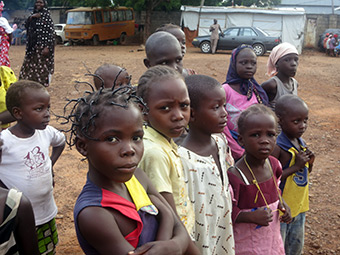
Children in a refugee camp in eastern Nigeria.
The American University of Nigeria (AUN) was co-founded by Rotarian Felix Obadan in 2000, and 12 years later, when Felix was governor of Rotary’s District 9125, which covers a large portion of Nigeria, he chartered the Rotary Club of Yola-AUN on campus. Their strong influence on campus makes it not surprising that many University professors and senior staff are Rotary members, and that the University prides itself on its work toward peace, entrepreneurship, and economic development as well as its strong academics.
The University’s mission is to graduate students prepared to take on the challenges in Nigeria and throughout West Africa – challenges of climate change, development, and peace building. And peace is not an abstract concept at the university. After all, it is located in Yola, the capital of Adamawa State, in the region where Boko Haram is most powerful. In fact, those few dozen Chibok schoolgirls who escaped from being kidnapped by Boko Haram are now safely living at the University, where they are receiving social services and education.
Boko Haram has brought me to the American University of Nigeria as well. I am here as part of a team from Rotary’s District 7780 in New England to meet with the two Rotary clubs in Yola, and to visit Rotary projects including a camp for internally displaced families in flight from Boko Haram. It is our intention to see what we can do in terms of a global grant to help them.
Putting together a global grant will not be easy. The needs of the people living at the camp are immediate, and it is hard to think in terms of long-term sustainability. Food, for example, is a continuing problem. The men are agricultural workers and are eager to get back to working the soil, but even if they could rent land near to the camp, it’s hard for them to think ahead to next year’s crop. One non-governmental organization gave the men seed for planting, we are told, but because their children are hungry, the seed was promptly cooked and eaten.
The families at the camps – who are there because they have fled their villages for their lives – are living testimony of the need for us, their neighbors, to strive for peace.
Meanwhile, while they wait for political change, the women weave craft items to sell out of the plastic bags that litter the sides of the road, and the children – many of whom have been out of school for several years while their families have been on the run – attend a government school near the camp.
Still, I find myself very optimistic about being able to craft a global grant to help these families. After all, the Yola clubs know the camps intimately, and have both the contacts and the resources to understand what will work best. Our Districts – 9125 in Nigeria and 7780 in New England – have worked together for over a decade, with National Immunization Days, a Group Study Exchange, and both matching and global grants to our credit.
This is what Rotary is all about – developing relationships that span the globe and make possible long-term humanitarian change. And the families at the camps – who are there because they have fled their villages for their lives – are living testimony of the need for us, their neighbors, to strive for peace.
District Governor Michael Milston Official CLUB Visit
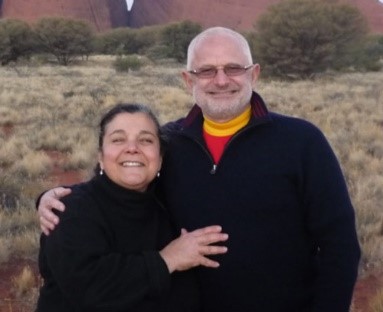
Tuesday 4th October at 7.00pm EST (Brisbane) – 8.00pm ESDT (NSW & VIC)
DG Michael and partner Ann Dib will deliver a presentation then will take questions.
It would be great if ALL members could make the effort to attend.
If any other Rotarian wishes to make-up or any prospective member or interested person wishes to attend please email me (johnroberson@bigpond.com)and i will send you the GoToMeeting link and instructions on how to join the meeting and presentation.
The monthly Board meeting will be held after the presentation.
MEMBER SURVey RESULTS
The survey asked members to consider Club goals and what they wanted to achieve by being a member of our Rotary E-Club.
These are comments made by our members in the recent survey that all members completed. Thank you to all for completing the survey and the sincerity of your comments.
Please feel free to email, make comments on the website and discuss the comments below with your fellow members:
- I still very much feel I am learning the ropes about Rotary as a whole.
- Encourage those who wish to join Rotary but don’t have the time for weekly meetings, to understand the benefits of the E-Club.
- Increase membership and raise fund for the Rotary Foundation.
- I’m comfortable with the Club taking six to twelve months to establish itself.
- We need more members attending more regularly.
- Find ways of working with the Youth in our communities to participate in the youth programs available.
- Raise awareness and develop networks to promote our RAWCS projects.
- Fund raising for our Club RAWCS projects.
- Participation in a Rotary club that is much more convenient and fits in with my busy lifestyle and personal situation.
- Encourage more engagement with members via the Facebook group – as an E-Club I think it’s really important that social media is used effectively.
- We need some local projects – at least one – to support.
- Be part of a functioning Club that continues to actively support international projects, and develop relevant community projects.
- We need to get used to visiting the website regularly and each of us keeping up-to-date between meetings.
- Learn together about the ways other E-Clubs in Rotary function – what their successes and difficulties have been.
- Networking and flexibility of E-Club membership.
- Come up with a fundraising project, around a current relevant issue that even those members that are more remote from the District can be involved in.
- As a new member, I hope to continue to learn more about the work of Rotary as a whole and build my knowledge of this great organisation.
- We need to sort out the technology (is GoToMeeting the best tool, do we all need better headsets, etc).
- Be part of an enthusiastic group of Rotarians who want to actively serve humanity.
- I hope I can be involved in the Club’s activities, even though I am going to be remote from the District more often than not.
- Leverage my experience working in international development beyond my own project which may wind down over the next twelve months – then again it may get a new lease of life with some Rotary input.
- Not sure what goals I want our Club to achieve yet.
- I feel that I’m too new to offer much in developing goals and stating what I personally want to achieve.
- To further grow as a Rotarian, joining with other members to be part of something incredible to make a difference and do good in the world.
- Increase our membership to have a variety of members with different interests, knowledge and ideas.
- I’m quite enjoying listening to others, reading about Rotary and its projects, and just getting a general ‘feel’ for the organisation, its clubs and what they achieve.
- Establish a functioning e-club that is taking action to raise awareness and support international and local projects. A club that someone who knows nothing about Rotary would be inspired to join.
- Increase active membership, with a plan of how we will become a functioning club that is actively working on Rotary goals and projects.
- I am interested in piloting an Australian based alternative schoolies project in an Indigenous context.
- Increase our membership.
- Contributing to the good work of Rotary International.
- I wonder whether we might also consider a more structured and active online campaign for recruitment? How can we draw people to our online presence?
- Participation in Rotary Australia World Community Service (RAWCS) style projects.
- I want to get my head around all the different web presences for Rotary – its very confusing between RAWCS projects, ClubRunner, our own site, and I think there are others.
- Increase support for the Rotary Foundation.
- Support those in our club who have existing projects.
- Encourage our members to attend District Conference for yearly fellowship.
- To become an active club within the District of 9700.
- I want to be able to contribute to my community.
These comments show a positive enthusiasm by most members to continue the development of our Club; the desire to educate and mentor our newer members with the ideals of Rotary and to encourage our serving humanity in the best possible way that we can.
LOOK AT THE SECRETARY & TREASURER PAGES
Both have been updated.
Our Club international Projects
We now have five International Projects listed on our website that are managed in part or entirely by members of our Club. They have recently had a Donation link added to each page that goes directly to our RAWCS payment gateway. Have a look! Make a donation!
Ethical Dilemma Discussion: what do you do?
Your club is working to provide technology and training for teachers and children at a school in a very low-income area with limited educational resources. During your search for sponsors, a club member in a senior position at a well-known business offers to pay most of the project’s costs. This sponsorship would allow you to complete the project quickly, and kids would be in classrooms learning in just a short time. You are grateful for the generosity but hesitate because this business has been in the media over some ethical concerns. You aren’t sure it’s a good idea to accept the sponsorship, but raising the funds in other ways could sharply delay the project.
Some comments by Rotarians on this Forum Topic are listed below:
Thank you to all who attended the Guest Speaker and Board Meeting on Wednesday 7th September. Matt Eakin gave a great presentation that you can access under Member Login/ Video Meetings on this website.
This is Basic Education & Literacy Month and I believe the comments below are very relevant and explain the power of the Rotary Youth Exchange program to change lives and the world.
Making peace, one exchange student at a time
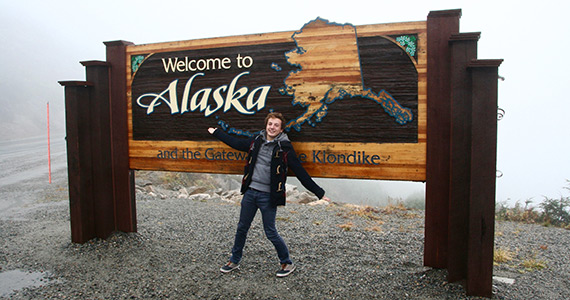
Belgian Exchange Student Marcellin Niset in Alaska
By Marcellin Niset, Rotary Youth Exchange Student from Belgium to Alaska
The Italian-American author and actress Vanna Bonta wrote, “There’s no hospitality like understanding.” That quote stuck with me as a Rotary Youth Exchange student to Alaska in 2015-16. I arrived in Alaska, a wilderness filled with beauty and love, determined to make my exchange purposeful and beneficial for myself, my host community, and the world.
An exchange is not only about a student going abroad, it is about all the people who make this exchange possible, and the ones that are impacted, directly and indirectly.
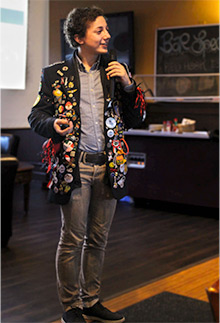
Niset is using his exchange year as an opportunity to promote tolerance and respect.
I come from a small village in rural Belgium and the exchange is a unique chance to accomplish something bigger than myself. To be selected as an ambassador for Rotary and my country meant being the custodian of national values and beliefs.
Sometimes, the mission was easy. I brought happiness to people by making countless Belgian waffles. I presented facts about my homeland to my host club and community. But going deeper, and sharing what makes people from my country unique, explaining why we think and behave differently, without judging, is harder. There is not just one way to do things, and one way isn’t better than another, just different.
At my first orientation with the other exchange students in Alaska, our coordinator told us that the Rotary Youth Exchange motto was to “Make peace in the world, one student at a time.” I only understood the real meaning of this sentence later in my exchange.
Terrorist attack
On 22 March, Belgium became the target of a terrorist attack. I saw the last place I had been in my country, the airport, blown up by people who didn’t understand differences. I saw a symbol of globalization exploded and my beliefs harmed. I had a friend from France, two from Indonesia, one from Germany. All of them felt the weight of terrorism. It oppresses you, makes you fearful, sad, and angry.
How in a world interconnected, multicultural, and full of exchange students, can terrorist attacks still happen?
But then it suddenly made sense to me why I was on exchange at this time. I realized how I could explain the values my country stands for, and show how Rotary members and exchange students can work together to help solve the world’s problems. Rotary members already have a drive to change the world. Exchange students promote tolerance and respect.
Thanks to my exchange, I had the opportunity to share my values, my beliefs, my identity. I try to make the world stronger, one speech at a time, and am inspired to strive for greater things.
This is the power of Rotary Youth Exchange. And it can be the pride of Rotary, too.
Learn more about exchange opportunities through Rotary
